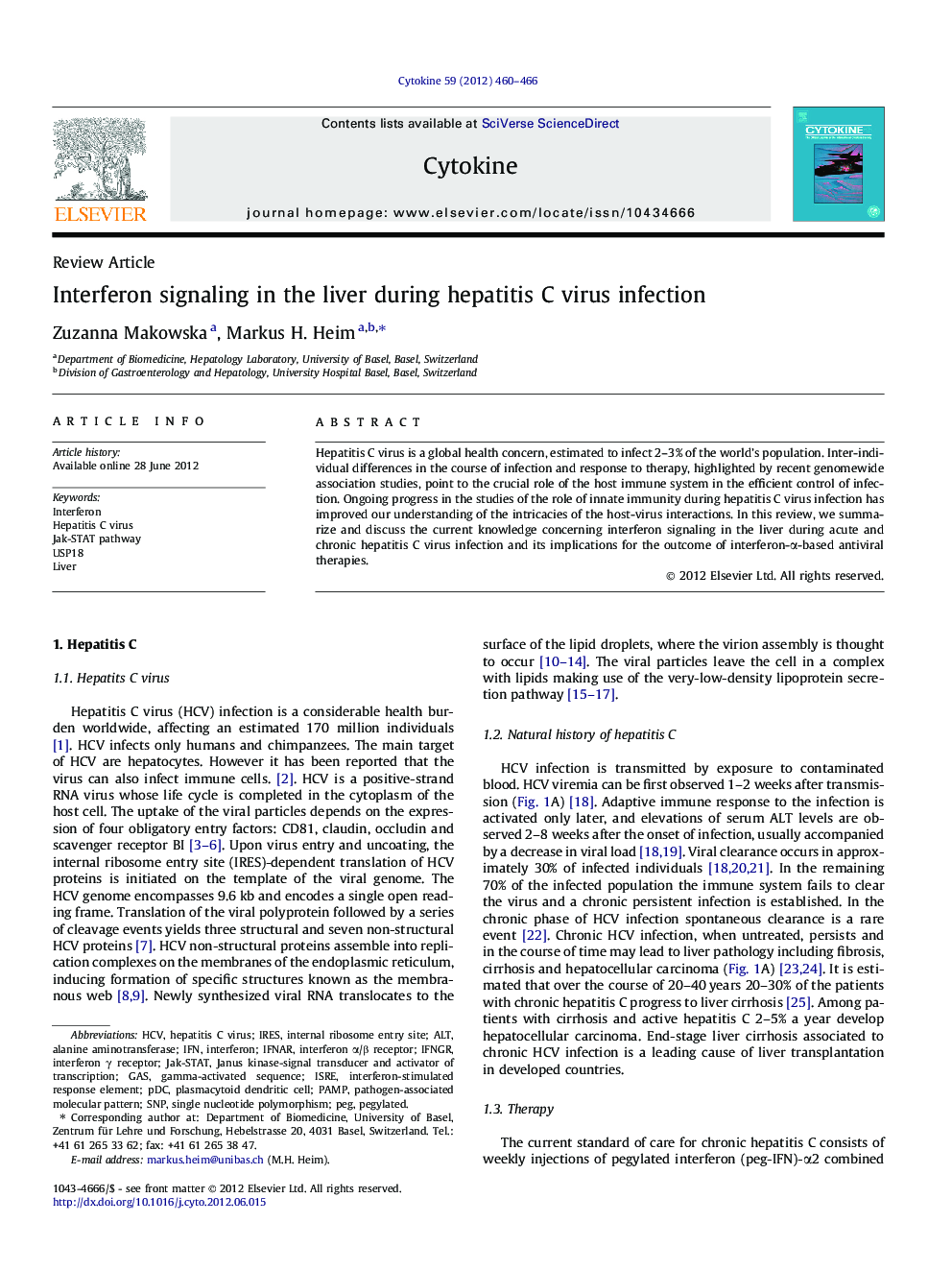| Article ID | Journal | Published Year | Pages | File Type |
|---|---|---|---|---|
| 2794509 | Cytokine | 2012 | 7 Pages |
Hepatitis C virus is a global health concern, estimated to infect 2–3% of the world’s population. Inter-individual differences in the course of infection and response to therapy, highlighted by recent genomewide association studies, point to the crucial role of the host immune system in the efficient control of infection. Ongoing progress in the studies of the role of innate immunity during hepatitis C virus infection has improved our understanding of the intricacies of the host-virus interactions. In this review, we summarize and discuss the current knowledge concerning interferon signaling in the liver during acute and chronic hepatitis C virus infection and its implications for the outcome of interferon-α-based antiviral therapies.
► Hepatitis C virus (HCV) is a global health concern. ► Interferon-alpha (IFN-α) is used for the treatment of HCV infections. ► HCV infections can activate the endogenous IFN system in the liver. ► Despite the activation of the IFN system, HCV persists in most patients. ► Patients with an activated IFN system do not respond to pegylated IFN-α and ribavirin.
